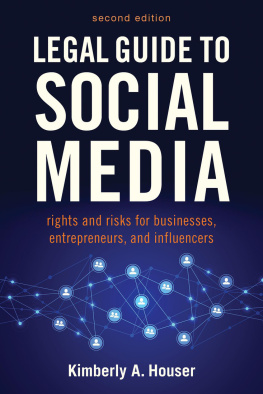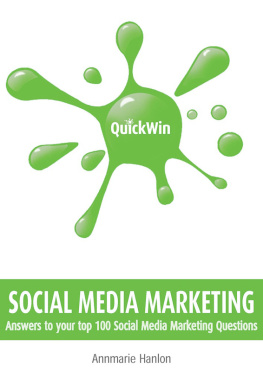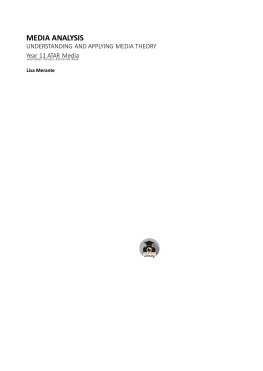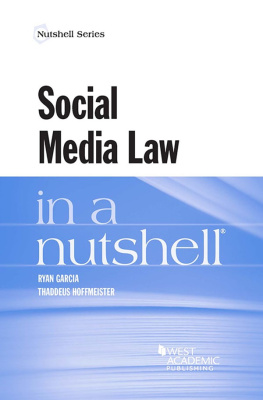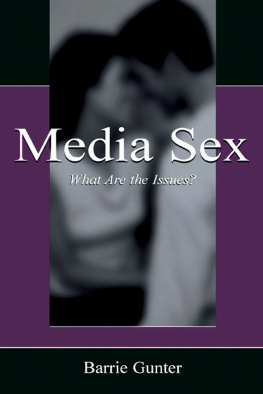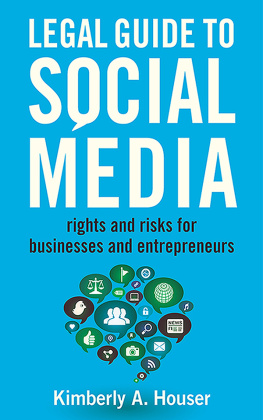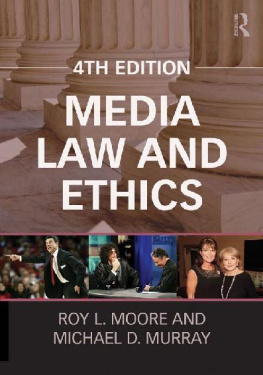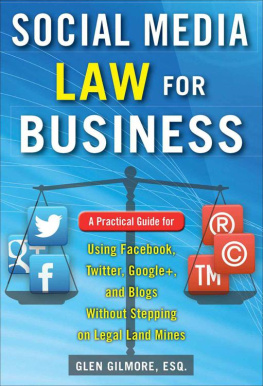ACKNOWLEDGEMENTS
The author acknowledges the help and support of many colleagues and friends in the preparation of this book, especially Brian Flynn and Sarah Kieran, also Marie McGonagle, Bernadette OSullivan and Sharon McLaughlin, all of NUIG, Teresa Hanratty of Learning Waves, Eamonn Kennedy of RT, Rosemary Day of Mary Immaculate College UL, Ailish Farragher of Eugene F. Collins Legal Resource Centre, Brian OKane of Oak Tree Press, Lisa Devanny, Hilarie Owen, Keara Robins, Bernardine Maloney and others happily too numerous to name individually, including my colleagues at Eugene F. Collins, Solicitors, and Judy Goldman for her legal proofreading. Your assistance and encouragement are very much appreciated.
This book is dedicated to
Brian Flynn
ABOUT OAK TREE PRESS
Oak Tree Press develops and delivers information, advice and resources for entrepreneurs and managers. It is Irelands leading business book publisher, with an unrivalled reputation for quality titles across business, management, HR, law, marketing and enterprise topics.
In addition, through its founder and managing director, Brian OKane, Oak Tree Press occupies a unique position in start-up and small business support in Ireland through its standard-setting titles, as well training courses, mentoring and advisory services. Oak Tree Press is comfortable across a range of communication media print, web and training, focusing always on the effective communication of business information.
Oak Tree Press, 19 Rutland Street, Cork, Ireland.
T: + 353 21 4313855 F: + 353 21 4313496.
E:.
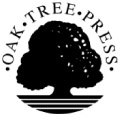
ABOUT THE AUTHOR

ANDREA MARTIN is a lawyer with over 23 years experience and has practiced exclusively in media law since 1998. She worked for a number of years as part of the in-house legal team for Irelands State broadcaster, RT, before returning to private practice in 2003. She is now a Consultant with the Media Law Group of Eugene F. Collins, Solicitors in Dublin, advising clients from individuals and independent production companies to large corporations in traditional and digital media-related matters.
Andrea is in demand as a trainer throughout the media sector in Ireland and is the legal trainer for the Learning Waves training project for the commercial radio sector. Andrea guest-lectures extensively in media law at universities and colleges throughout Ireland and is a frequent contributor to radio and television discussions about media law topics
ABOUT THE QUICK WIN SERIES
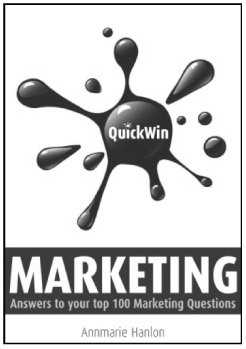
The Quick Win series of books, apps and websites is designed for the modern, busy reader, who wants to learn enough to complete the immediate task at hand, but needs to see the information in context.
Topics published to date include:
- QUICK WIN B2B SALES.
- QUICK WIN DIGITAL MARKETING.
- QUICK WIN LEADERSHIP.
- QUICK WIN MARKETING.
- QUICK WIN SAFETY MANAGEMENT.
Topics planned for 2011 include:
- QUICK WIN ECONOMICS.
- QUICK WIN FRANCHISING.
- QUICK WIN LEAN BUSINESS.
- QUICK WIN SMALL BUSINESS.
For more information, see www.oaktreepress.com .
Appendix: Glossary of Legal Terms
Accused: The person charged with a criminal offence (see also Defendant). By convention, the term Accused usually is used where the charge is to be heard by a jury.
Act of the Oireachtas: A piece of primary legislation, passed in accordance with the procedures set out in the Constitution by both the Dil and Seanad and signed into law by the President (spelt with a capital A).
Affidavit: A statement by which a person sets out in written form certain facts within their own knowledge and / or which they believe to be true and swears on oath that the contents of the statement are true; may relate to a court case or a non-judicial process.
Common law: The traditional system of judge-made, precedent-based law that developed originally in Britain and, later, in countries colonised by Britain. Under common law, judges in the higher courts can further develop and refine legal principles, drawing on the principles and precedents established by higher court judges in previous cases.
Damages: Financial compensation ordered by a court to be paid by the defendant to the plaintiff in a civil claim to compensate for the wrong found by the court to have been done to the plaintiff by the defendant.
Defendant: In civil law, the person (both a natural person and a legal entity, such as a limited company) against whom a claim is brought in the civil courts; in criminal law, the person against whom a criminal charge is laid (see also Accused). By convention, this term usually is used where the charge is tried summarily in the District Court.
Directive: A form of EU legislation used to harmonise and standardise certain areas of law across all EU States. Member States usually have a specified period of time within which to incorporate the provisions of a Directive into their domestic law. In Ireland, implementation of a Directive is effected by the making of a SI or the passing of an Act of the Oireachtas.
Discovery: A legal process whereby documentation relevant to an ongoing court case is disclosed to one or more of the parties involved in that litigation. Discovery may be made voluntarily or on foot of a court order. Discovery may be made by any of the parties to the litigation or by a third-party who holds relevant documentation.
Director of Public Prosecutions (DPP): The State legal officer responsible for reviewing Garda crime investigation files, deciding whether to prosecute, preparing the prosecution case and prosecuting criminal charges.
Estate: Where used in reference to a deceased person, means the totality of the property assets and liabilities of a deceased person as administered by the person(s) with legal authority to do so.
Interlocutory order: A court order made prior to the final determination of a civil action that provides a form of temporary relief to one of the parties, or decides an issue that has arisen in the case but does not make a final decision on the entire case.
Plaintiff: The person (to include both a natural person and a legal person, such as a limited company) by whom a claim is brought in the civil courts; in UK court procedure, the plaintiff is referred to as the claimant.
Pleadings: Formal court documents issued by the parties to a civil claim in accordance with court rules, in which the case made by each party to the claim is set out; pleadings are lodged with the relevant court office and made available to both parties to the claim.
Regulation: This term (spelt with a capital R) can have one of two meanings: (i) A form of EU law that has direct application in Member States without needing to be incorporated specifically into domestic law by each Member State; (ii) A statutory instrument may provide that its contents are to be referred to as Regulations.
Statutory: Indicates a legal principle, rule or procedure set out in legislation.
Statutory Instrument (SI): A form of secondary legislation passed by a Government Minister or State body authorised to do so by an Act of the Oireachtas, by which the provisions of an Act are implemented; can also be used by a Government Minister to give effect to an EU Directive or an Act. Sometimes referred to as enabling legislation.



